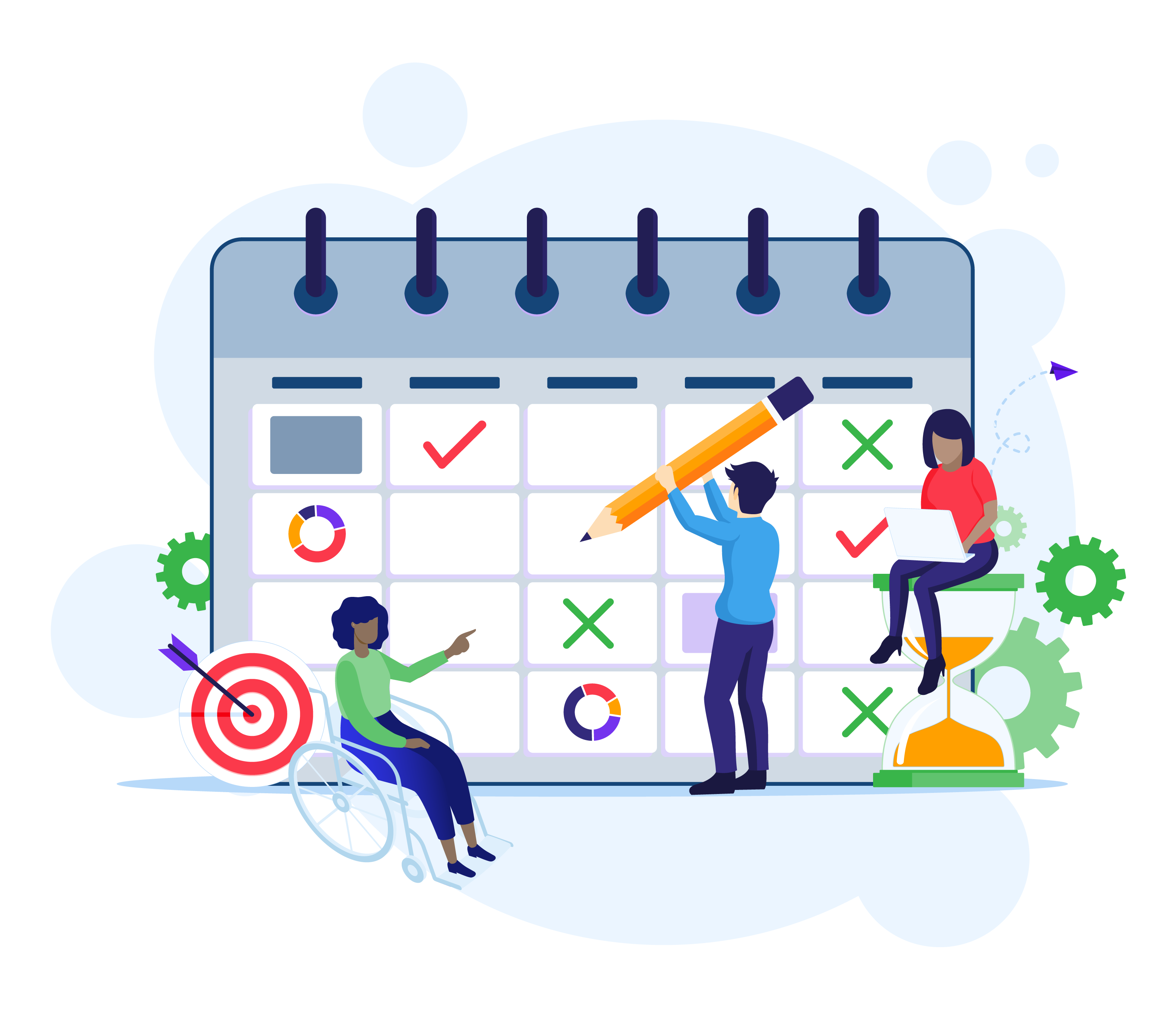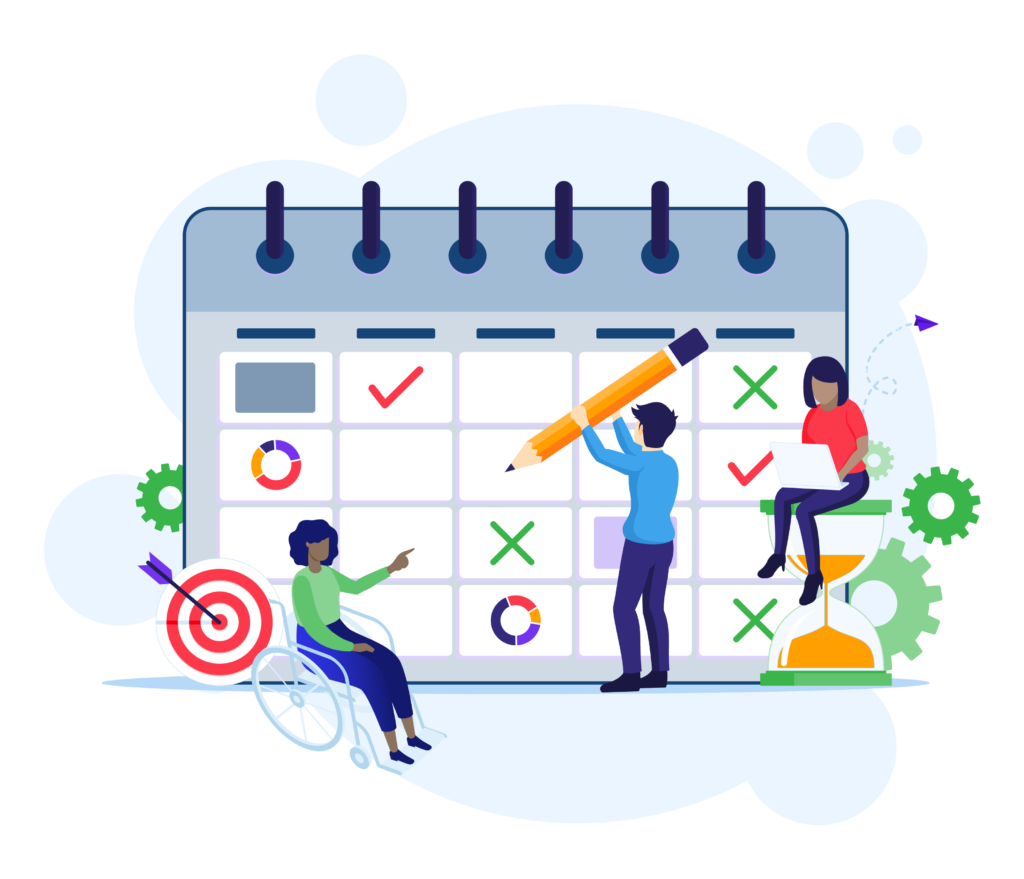
Authors: Lisa Backer and Margo Smith
Contributors: DaSy’s Data Managers Learning Community
So much of Early Childhood Special Education and Early Intervention Data Systems work is seasonal and centered around key deadlines. When is there time to address priorities that lurk just under the radar throughout the year? How can we attend to these priorities on an ongoing basis?
We asked the Data Managers Learning Community for help brainstorming. Here are their tips for making progress throughout the year regardless of the “data season” of the moment.
If you haven’t created a plan or put actions on your calendar for these items, take one simple next step and create ongoing action in each area. To prevent overwhelm and keep up momentum, the steps below could (and maybe should) take 10 minutes or less. Ideally, add intentional space in your calendar for taking these steps regularly to make ample time for these priorities.
Please call your DaSy State Technical Assistance Liaison for the zoom link.
✅ Local Data & Relationship Building
First, focus on building relationships with key staff in local programs. Good data (and bad data) begins at the local level. Have you been meaning to connect more with a local data manager or coordinator? Pick up the phone for an informal and agenda-free chat. Put tasks like this on the calendar and follow through later, or make the call right now. Taking steps like this will make connecting with local staff easier when you do have an agenda to discuss.
Then, you can add simple next steps to make it easier and more routine to identify and act on local data anomalies even (or especially) when not under deadline pressure.
✅ Data Leadership Competencies
Reflect on your personal data competencies. Review or create your professional development plan and take action to obtain knowledge and skills that you know will help you do your job even better. Continually reflect on strengths and opportunities for improvement. Use ongoing TA opportunities, even if just prove to yourself that, yes, you do know more than all those other states. You can also take advantage of these resources:
- Develop your plan around the Data Leadership Competencies
- Attend Data Managers’ Office Hours on the second and fourth Tuesday of every month from 2:00 PM to 2:30 PM ET / 1:00 PM to 1:30 PM CT / 11:00 AM to 11:30 AM PT.Connect with your DaSy liaison for the meeting link and details!
- Join a Learning Community
- Find DaSy and Partner Center TA opportunities on this joint calendar
Stay on top of changing federal requirements. Something will change. It always does. At the moment, two processes that are evolving are modernization and DMS 2.0. Deadlines and processes for reporting have changed. For more information regarding modernization, visit this webpage. Please note the information on this website is subject to change. For information on DMS 2.0, visit this webpage. Keep these key dates in mind:
- Exiting Data submission for the school year 2022-23 was due February 2024
- Child Count Data for the school year 2023-24 is due August 2024*
- Dispute Resolution Data submission for school year 2023-24 is due November 2024*
*Dates subject to change
✅ Data Governance and Culture
Even if you don’t think you’re going anywhere, plan for your departure. Anyone can win the lottery or get hit by a bus. Take intentional steps to create a culture of data use with your team and colleagues. Document your processes. Attend to colleague and staff professional development needs. Start with a monthly look at a data visualization, a local data anomaly, and/or state protocol documents internally. Try a new data visualization strategy. Regularly create new data displays for internal discussion and action. These agenda items can shift your team and colleagues toward a culture of data use so that data system and quality improvements can more easily follow.
- Part C Data Processes Toolkit
- Part C Data Related Resources
- Data Governance Toolkit
- Data Visualization Toolkit
✅ Data System Improvements
Effectively manage data infrastructure development or improvement projects from inception through development and into production. Consider both the system and the personnel development needed to achieve vision.
Your small steps toward progress with relationships, local data, leadership competencies, data governance, data culture, and data system improvements will pay off for the rest of the year. If you’re stuck, need help moving forward, or don’t know where to start, give your DaSy Liaison a call for targeted or ongoing support in any or all these areas.
DaSy Center Resources for ongoing learning
- Data Leadership Competencies
- Look! Think! Act! modules
- Data Governance Webinar: How Prepared Are You?
- SPP/APR Basics, What You Need to Know Training Series
- IDEA Part C Data Notes
- Join DaSy’s Data Managers’ Office Hours on the second and fourth Tuesday of every month from 2:00 PM to 2:30 PM ET / 1:00 PM to 1:30 PM CT / 11:00 AM to 11:30 AM PT.
- Contact your DaSy liaison for more information and to get connected.
Intended Audience
Part C State Data Managers, staff, and coordinators, TA specialists and others
About the Authors

Lisa Backer is a DaSy consultant. After a 20-year career with the Minnesota Department of Education, Lisa currently works for SpEd Forms, a special education software company serving districts in Minnesota and Wisconsin. She was an ECSE teacher and district administrator for 13 years before transitioning to state agency work. During her tenure with MDE, Lisa helped lead the development of the child outcomes measurement system and the early child real-time data warehouse. She actively oversaw the creation of the Centers of Excellence, the professional development initiative that works to support districts to effectively implement evidence-based practices, including the Pyramid Model.

Margo Smith is a DaSy consultant providing communications and other support for DaSy TA products. She has a background in journalism, data visualization, and data use in early childhood care and education TA.
Published February 2024.


